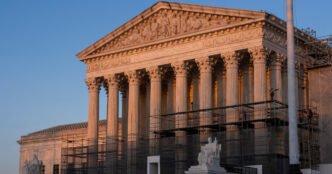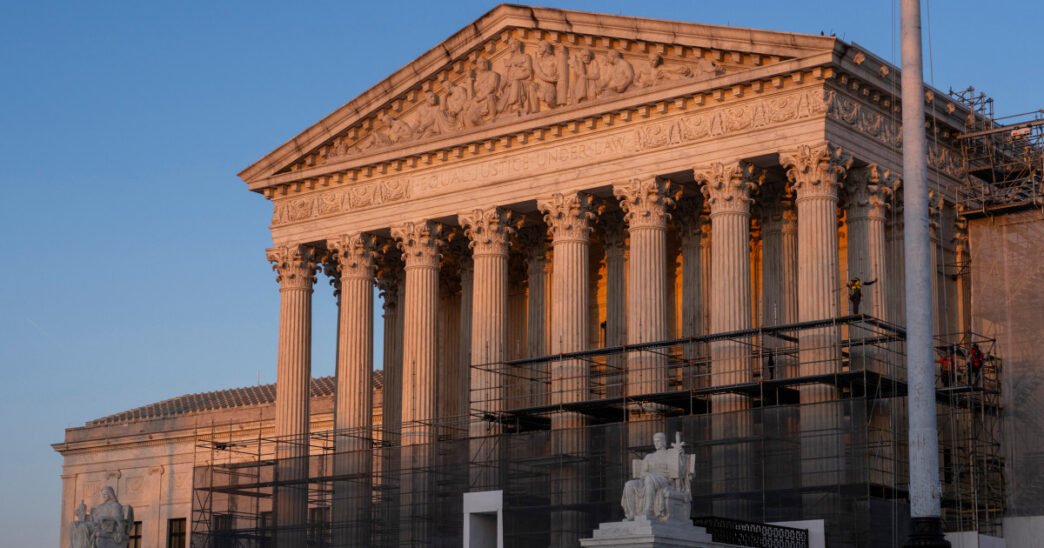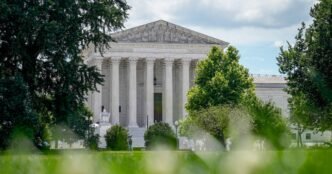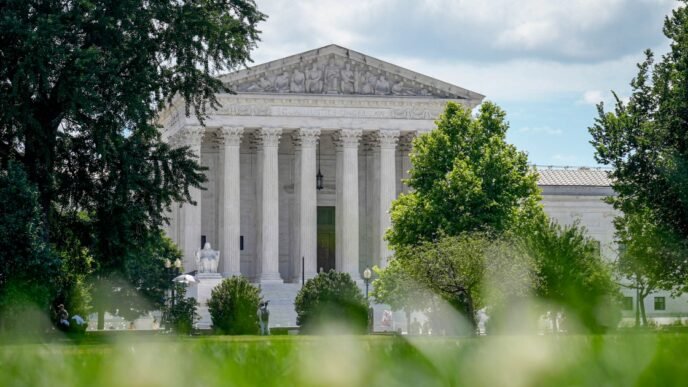Americans do not think the president should have the ability to act unconstrained by the courts and Congress, according to new research on U.S. attitudes on checks and balances. But views on that question are divided by party amid President Donald Trump’s running battle with judges over his administration’s policies.
A growing list of policy changes ordered by Trump since he was sworn in have been at least temporarily blocked by federal judges after being challenged in court, including his moves to end birthright citizenship, give Department of Government Efficiency employees access to the Treasury Department’s payment systems, reduce the indirect cost recovery rate for all grants issued by the National Institutes of Health, eliminate the U.S. Agency for International Development, and more.
According to a study by the nonpartisan Congressional Research Service, at least 17 policies were blocked this way in the first two months of the second administration, compared to 19 such blockages during the entire Obama administration and 24 during the Biden administration.
The figures underscore how much of what the Trump administration has done has been contested in court — and Trump and his allies have pushed back against the judici as judges have blocked their policies. Trump called for a judge who ruled against him to be impeached, prompting a rare rebuke from Chief Justice John Roberts. Vice President JD Vance argued on X, “Judges aren’t allowed to control the executive’s legitimate power,” while border czar Tom Holman said “I don’t care what judges think” when asked about judicial efforts to block deportations.
But does the public feel the same way — that a president should have the right to ignore the wishes of the courts and Congress?
To answer this question, researchers at the Annenberg Public Policy Center conducted a study last month as part of the center’s Institutions of Democracy panel survey, interviewing a nationally representative sample of 1,363 Americans from March 6-16 on six questions designed to measure their support for the system of checks and balances.
The data was remarkably clear: Americans do not think the president should have the ability to act unconstrained by the courts and Congress. With one small exception, a majority of the public rejects the claim that presidents should have expansive powers. While Republicans are the most supportive of greater executive power as Trump currently sits in the Oval Office, most of them still reject claims of unilateral authority.
Instead, Democrats, Republicans and independents alike believe that the courts and Congress should be able to check the president’s actions. The one partial exception is that a majority of Republicans think that the president should have the authority to decide how executive agencies should implement the law. But even here, it is just a slight majority, and it is arguably a more subtle item than the other questions.













